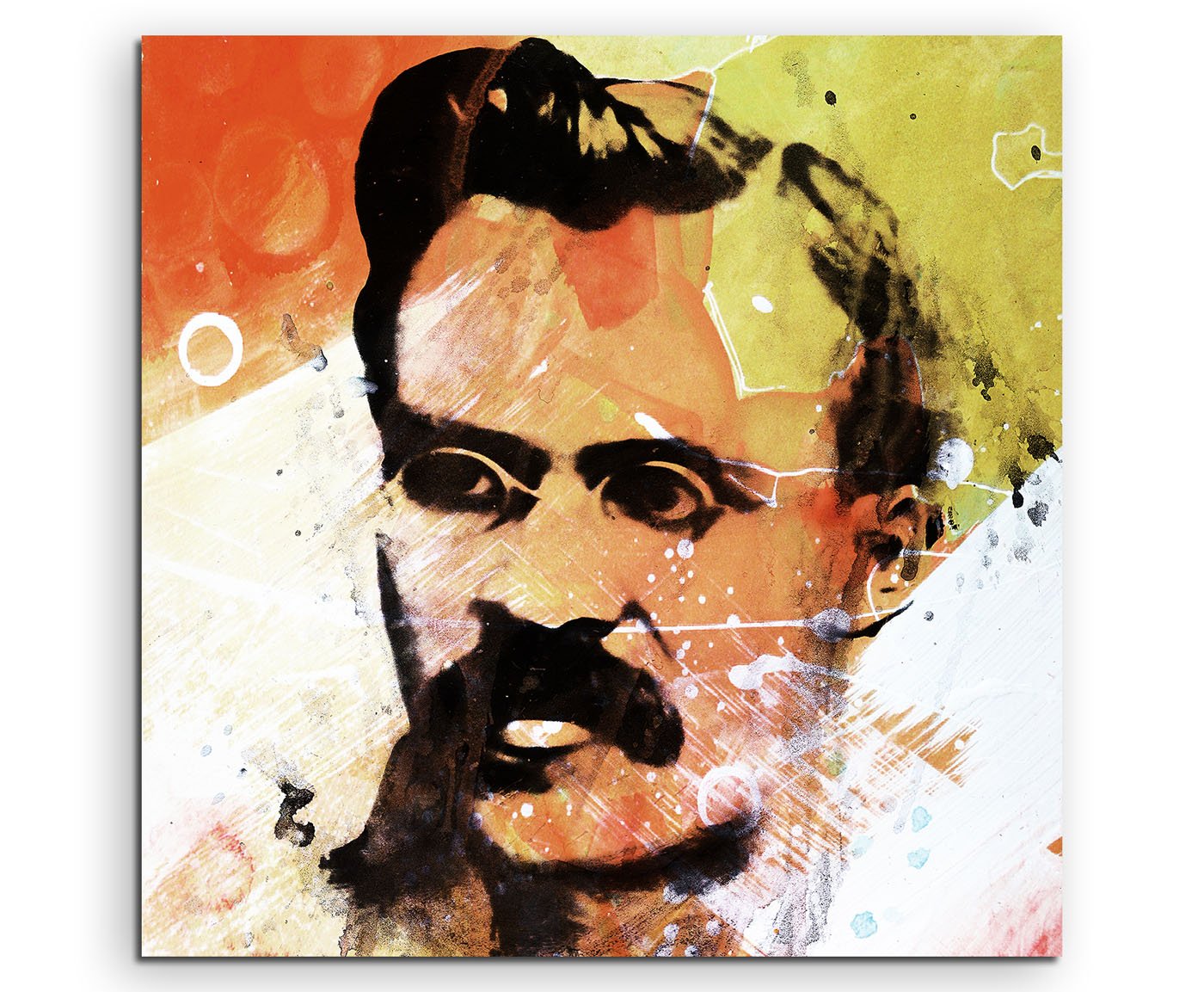
- What determines rank ,quanta of power and nothing else.
- The grandiose prototype : man in nature-the weakest shrewdest creature making himself master,subjugating the stupider forces.
- Whoever still wants to retain power flatters the mob,works with the mob,must have the mob on its side.
- The strong are subsequently weaker,more devoid of will,more absurd than the weak average.
- The man as summation of strength acquires a much greater quantum of mastery over things if life is as it is-we stand before a problem of economics.
- The production of a synthetic,summarising,justifying man for whose existence this transformation of mankind into a machine is a precondition,as a base on which he can invent his higher form of being.
- ..Of the greatest severity towards themselves and able to guarantee the most enduring will.
- Has it been noticed that in heaven all interesting men are missing ?
- The rights a man arrogates to himself are related to the duties he imposes upon himself, to the tasks he feels equal.
- Most men represent pieces and fragments of man: one has to add them up for a complete man to appear.
- The great synthetic man is lacking,in whom the various forces are unhesitatingly harnessed for the attainment of one goal.
- For the production of a personality one needs early isolation,a compulsion to an existence of defense and combat,something like an incarceration,a greater power of self definition; and above all a much lower impressionability than that of the average man,whose humanity is contagious.
- The task is to make man as useful as possible and to approximate him,as far as possible to an infallible machine.
- The mechanical form of existence as the highest,most venerable form of existence,worshipping itself.
- The strong man,mighty in the instincts of a powerful health digest his deeds in just the same way as he digests his meals.
- A shrewd explotation of the given situation,is no doubt our best,most advisable course of action.
- To be able to command and also proudly to obey;to stand in the ranks,but also capable at any time of leading; to prefer danger to comfort; not to weigh the permitted and the forbidden on a shopkeeper’s scales..
- How does one become stronger ?- By coming to decisions slowly; and by clinging tenaciously to what one has decided. Everything else follows.
- The sudden and the changeable: the two species of weakness. Not to mistake oneself for one of them ; to feel the distance before it is too late.
- For what does one have to atone most ? For one’s modesty for having failed to listen to one’s most personal requirements for having mistaken oneself,for having underestimated oneself..
- A higher stage is to overcome even this pressure of “following one’s feelings”within us and to perform a heroic act not on impulse,but coldly,raisonnable, without being overwhelmed by stormy feelings of pleasure
- The greater the dominating power of a will,the more freedom may the passions be allowed.
- Higher than you shalt is I will ( The heroes); higher than I will stands I m ( the gods of the greeks)
- The teaching meden agan ( nothing much) applies to men of overflowing strength-not to the mediocre. The enkrateia (temperance) and askesis (ascetic) is only a stage toward the heights: the golden nature is higher.
- In Plato’s theages it is written: each one of us would like to be master over all men,if possible and best of all God.This aatitude must exist again.
- The highest man would have the greatest multiplicity of drives,in the relatiively greatest strength that can be endured.
- It is a comfort to me to know that above the steam and filth of human lowlands there is a higher, brighter humanity, very small in number (for everything outstanding is by its nature rare): one belongs to it, not because one is more talented or more virtuous or more heroic or more loving than the men below, but–because one is colder, brighter, more far-seeing, more solitary; because one endures, prefers, demands solitude as happiness, as privilege, indeed as a condition of existence; because one lives among clouds and lightning as among one’s own kind, but equally among rays of sunlight, drops of dew, flakes of snow, and everything that necessarily comes from the heights and, when it moves, moves eternally only in the direction from above to below. Aspirations toward the heights are not ours.– Heroes, martyrs, geniuses and enthusiasts are not still, patient, subtle, cold, slow enough for us.
- How do men attain great strength and a great task ? All the virtues and efficiency of body and soul are acquired laboriously and little by little,through much industry,self constraint through much obstinate,faithful repetition of the same labours,the same renunciations.
- To press everything terrible into service,one by one,step by step,experimentaly: this is what the task of culture demands.
- A full and powerful soul not only copes with painful,even terrible losses,deprivations,robberies,insults; it emerges from such hells with a greater fullness and powerfulness; and most essential of all,with a new increase in the blissfulness of love.
- I should not like to undervalue the amiable virtues; but greatness of soul is not compatible with them. Even in the arts,the grand style excludes the pleasing.
- In times of painful tension and vulnerability,choose war: it hardens,it produces muscles.
- This world is the will to power-and nothing besides. And you yourselves are also this will to power-and nothing besides.
Friedrich Nietzsche, Will to Power,Edited by Walter Kaufmann,Vintage Books,New York,1968